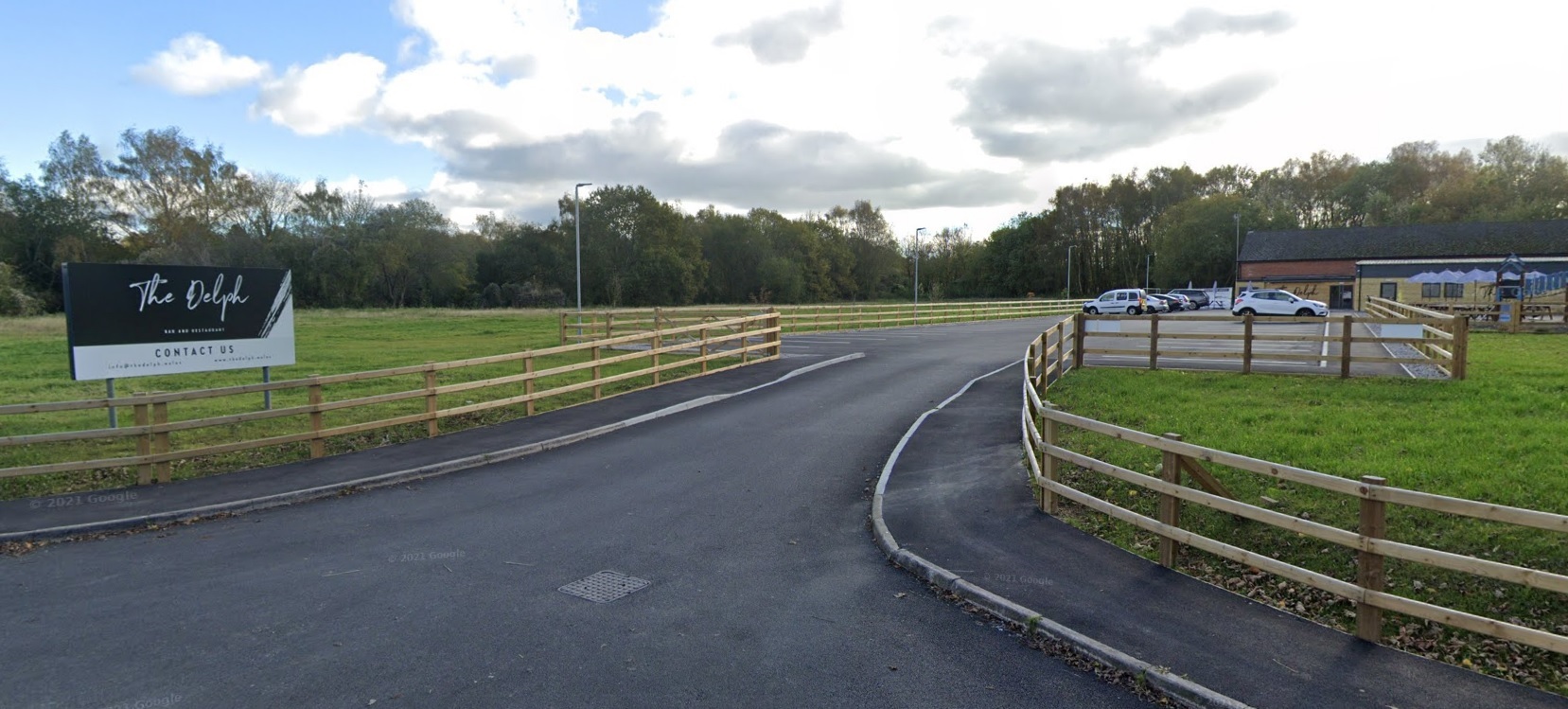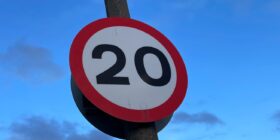The 1904-1905 Welsh Revival

In the fourth of our Wrexham History features, this week we take a look the Welsh Revival.
Much has been written of the 1904 religious revival led by Evan Roberts in Loughor, South Wales.
At the same time as this was happening, a quite separate spiritual awakening was taking place in North Wales, in the large mining community of Rhosllannerchrugog (Rhos) near Wrexham. There was no prior consultation or contact between the two places and no central human agency governing the events.
Rhos was known as the largest village in Wales and contained as many as 27 chapels. The Welsh Religious Revival of 1904 had a major impact there. The famous bardic line Beibl a Rhaw i Bobl y Rhos (a Bible and a Spade for the People of Rhos) reflects the respect held for both coal-mining and the chapels in Rhos. At that time, Rhos was Welsh-speaking, with few English people living there. Most men and boys worked underground in the coal mines. Wages were poor, life was hard and boys worked nine-and-a-half hours for three shillings (fifteen pence) a day. There was little social concern for the condition of the people and drink was a widespread social evil.
Even before 1904, the Bible and those who preached it were given respect and scripture was discussed in the public houses. There were many preachers in Rhos. Not all of them were well educated, but they certainly took their call to the ministry seriously. On June 19th and 20th, 1904, a preaching festival at Ponciau saw the power of the Holy Spirit which reminded older members of the 1859 revival.
The revival in Rhos started quite unexpectedly in the Penuel Welsh Baptist Chapel (Capel Penuel) on High Street, Rhos. The person used by God to set North Wales alight was a well-respected thirty-five year old South Wales Baptist minister, Rhys Bevan Jones.
RB (as he was known) was born in Dowlais, near Merthyr Tydfil and lived in the Rhondda for much of his life in ministry. Jones had been invited to conduct a series of meetings at Penuel Chapel from 8th to 18th November 1904. For the first week at Penuel, Jones preached on the vision of God, the sense of sin and the kingship of Christ, inspired by the Isaiah 6 passage, which had spoken so strongly to him in recent months.
By the end of the mission the Chapel was packed to capacity with thousands eager to take part in the meetings. The “revival” had come. The congregations grew until places of worship became unable to accommodate them. While preaching was so often conspicuous by its absence in Evan Roberts’ meetings, this was not the case in those led by R. B. Jones. During the ten day mission’s second week, powerful evangelistic messages were delivered with fervent prayer sessions prior to the meetings.
Rhos miner, John Powell Parry, who was present as a teenager in these meetings, described R.B.’s ministry at Penuel: ‘He made holiness real; he made holiness terrible. How can I describe it at all; it was a consuming fire. RB Jones was himself a consuming fire and so was his message. And the preacher’s fire consumed the congregation.’
There was a sense of life and reality about what was happening inside the churches of Rhos. People were involved with eternal issues and ‘things’ didn’t seem to matter anymore. In Penuel Baptist Chapel, R. B. Jones would sit at the front in the ‘big pew’ with his open Bible, ensuring that nothing took place contrary to Scripture. He preached every night from the 8th to the 18th of November. There was no formal order of service, but neither was there any confusion and people sang and praised God as the Spirit led them.
On Sundays the chapels were filled by six o’clock in the morning. The pits worked an eleven day fortnight and every other Monday was an extra day off; this was known as the ‘playing Monday’ but during the revival it was given over entirely to praising God. Crowds walked the streets singing and praising God. Most of the Rhos Silver Band were converted and would play hymns in the open air. Mothers rose at dawn, and when their husbands left for work they completed the housework early. They would see their children off to school and then attend chapel to worship.
Hundreds of non-believers were saved and the whole of Rhos seemed to be returning to the chapels and churches. People gave up drinking and smoking, and tobacco pouches and pipes were placed on the ‘big pew’ as a mark of their changed lives. Many drunkards were afraid to leave their homes or go to the public houses, which were being forced to close throughout 1905 because of lack of customers. Rhos Rangers football team were afraid to go out and play and for a while the club closed because there were no spectators.
Revival spread rapidly through Rhos, cutting across denominations until every church was affected. Church of England, Methodists, Congregationalists, Salvation Army and Baptists were all at prayer, with a great sense of harmony in the village. Tension and dispute among the miners disappeared and output was one hundred percent. Everyone spoke of being saved and some men were even saved while underground. Even those who weren’t saved were deeply affected.
Prior to the Revival, fighting had been a popular sport in Rhos. William Price, a well-known fighter in the town, was converted. He had never been to chapel before, and after his conversion he was so full of joy that he reproached the Christians by asking, ‘Why didn’t you tell me, my friends, that it was like this?’ Another fighter, Levi Jarvis, a man in his forties, was feared throughout Rhos. He opposed the work of God, yet was terrified of it. He became afraid to go to work, then afraid to come home again in case he got converted.
Jarvis was eventually converted and the congregation watched the great fighter raise his hands in the air in surrender to the Lord. He became like a lamb and although he lived beyond eighty, he never lost his faith. Four weeks after RB left Rhos, a Wrexham paper reported that “the whole district was in the grip of an extraordinary spiritual force which showed no sign of relaxing its hold!” The people themselves carried on the meetings, although the ministers were present. Some meetings went on from ten in the morning until six in the evening. In the street, in the train, in the car, even in the public-houses, this strange power upon the town was discussed in hushed and reverential tones.
In the evenings all classes marched through the town singing hymns, and occasionally stopping for prayer. Great numbers of visitors arrived in Rhos and many were converted at the prayer meetings that were held three times a day. On Boxing Day, Monday 26th December 1904, three prayer meetings were held in the village of Rhos, the evening congregation filling two chapels; and for months after this there were two prayer meetings a day, and three on Saturdays and Mondays.
By the end of February 1905 there were 1,338 converts in Rhos alone, reaching 2,267 by the beginning of March 1905. The Vicar of Rhos wrote; “Sneers are made at our Celtic temperament, but God gave it, and God can use it for the glory of His Name.” If the Welsh people share rather liberally, as is commonly assumed, in the gift of emotion, they need have no shame on that account, nor need it be gratuitously assumed that they do not know how to control it.
John Powell Parry, told of the summer of 1905 when a Christian man and his two daughters arrived in Rhos from Barrow-in-Furness, in northwest Lancashire. He had read of the revival in his daily paper and one of his daughters had suggested they might go and visit the town to see for themselves what was happening. They boarded the Sunday midnight slow train, arriving in Chester station at 6:00 a.m. They enquired of a porter: ‘How do we get to the place where the revival is?’
He told them that there would be a train at 8:00 a.m. to Wrexham and from there they could catch a local train to Rhos. ‘But how will we know when we are near Wrexham?’ they asked. ‘Oh,’ replied the porter, ‘You’ll feel it in the train.’ And they did! They sensed an unmistakable expectancy in the air. Two miles outside Rhos they enquired again and were told, ‘Go down that road and you will feel it down there.’ It was 9:00 a.m. on a ‘playing Monday’ when the visitor and his two daughters arrived at the chapel to find it already full of worshippers who had been there since 7:00 a.m.
On the 17th December, 1905, General Wm. Booth, Chief of the Salvation Army, visited Rhos and preached at Capel Mawr on Brook Street, the spacious edifice being filled at 1 o’clock for a service scheduled to begin at 2-45 p.m. While waiting, the congregation sang Welsh and English hymns alternately. The General took for his text Phil, IV, 13: “I can do all things through Christ which strengtheneth me.” During his stay at Rhos, the General was the honoured guest of the late Lieut. Col. Dr. J. C. Davies, Plas-yn-Rhos.
By the end of 1905 miners were holding prayer meetings underground before work began and family feuds were settled and drinking declined. The after-effects of the 1904 Revival continued right up until 1914. The effect of the Great War on the ‘revival generation’ can be seen in the lists of names on war memorials. The rise of Socialism in South Wales, and the Great Strike of 1926 which saw troops deployed against striking miners, also undermined the effect of the revival.
The lasting legacy of the revival is the huge number of chapels built across Wales. A century later the Revival is still subject for discussion. Written by – Dave Edwards for Wrexham History. Sources – John Evans (1942); Mrs. Jesse Penn-Lewis (1905); Philip H Eveson; Brian Edwards; Powell Parry; Paul Cook; Rhos Herald Newspaper; David Bebbington.
Written by – Dave Edwards for Wrexham History. Sources – John Evans (1942); Mrs. Jesse Penn-Lewis (1905); Philip H Eveson; Brian Edwards; Powell Parry; Paul Cook; Rhos Herald Newspaper; David Bebbington.
More of Wrexham’s history can be found on www.wrexham-history.co.uk
Spotted something? Got a story? Email [email protected]











